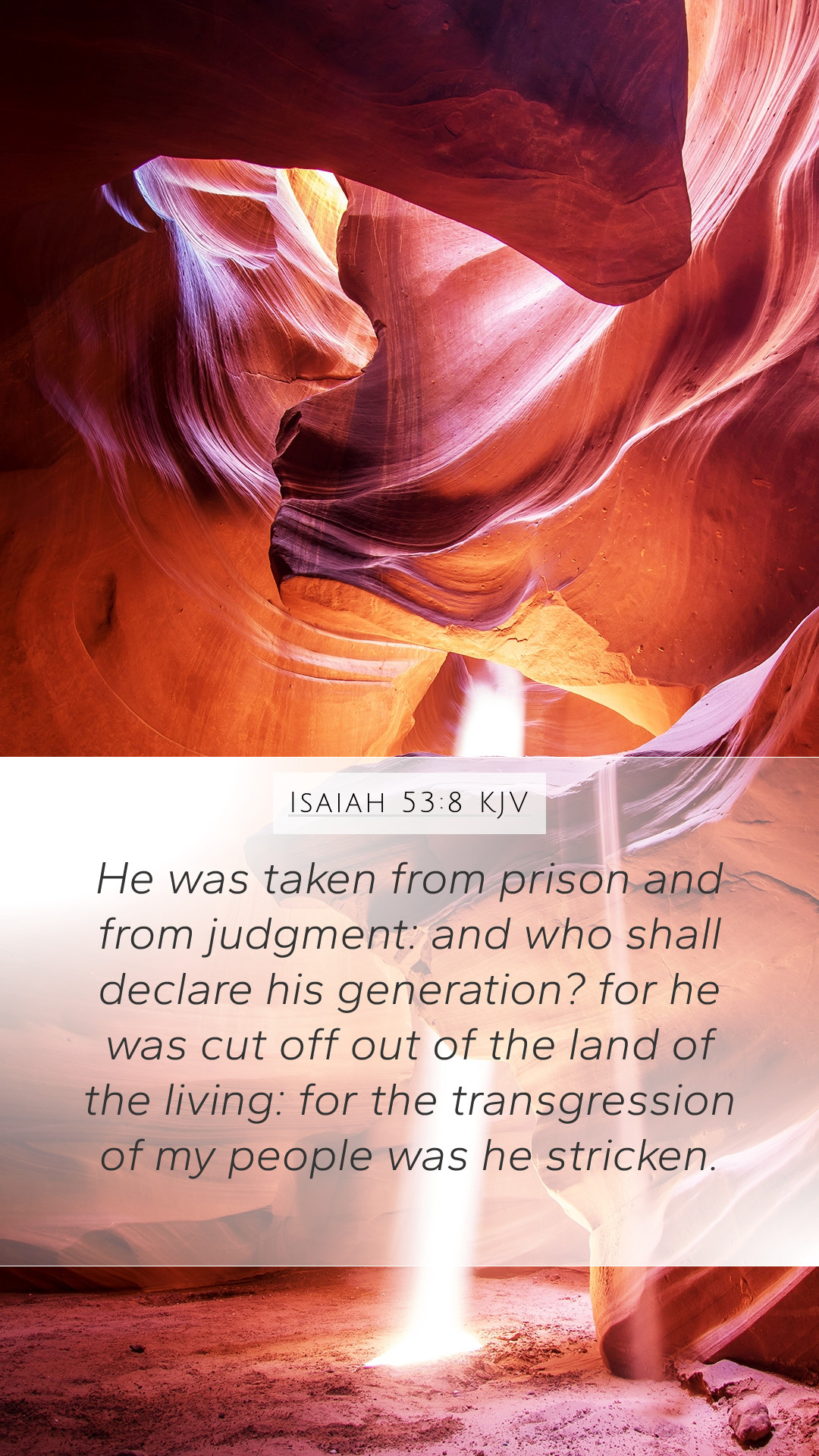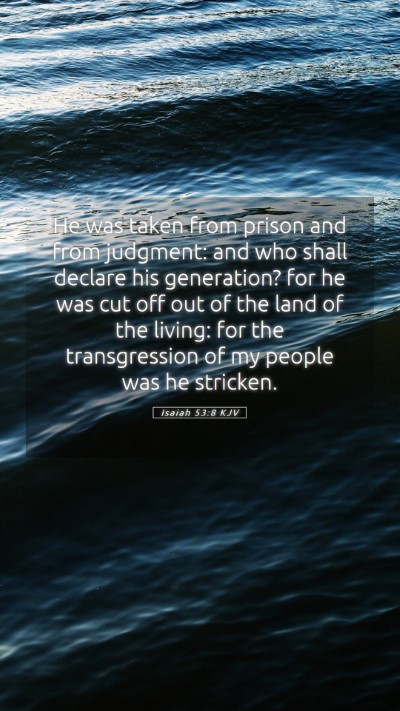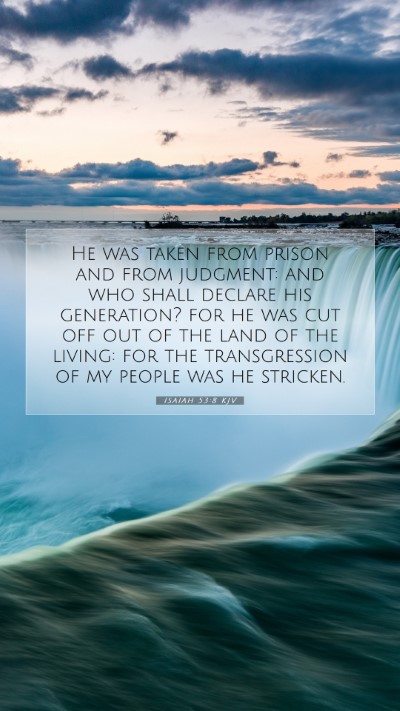Understanding Isaiah 53:8
Isaiah 53:8 is a profound verse that speaks to the suffering and sacrifice of the Messiah. This verse emphasizes the injustice faced by the righteous one, who is led away without a fair trial. Below is a comprehensive analysis of the meaning of this verse, drawing from respected public domain commentaries such as those by Matthew Henry, Albert Barnes, and Adam Clarke.
Verse Text
Isaiah 53:8 (KJV): "He was taken from prison and from judgment: and who shall declare his generation? for he was cut off out of the land of the living: for the transgression of my people was he stricken."
General Overview
The verse captures the essence of the suffering servant, portraying the gravitas of his wrongful suffering and the implications it bears for humanity. Isaiah prophesied the injustice that would befall the one who ultimately bears the sins of many, an allusion to Jesus Christ in Christian theology.
Summary of Commentary Insights
- Matthew Henry:
Henry emphasizes the sacrifice of the servant as part of God’s plan for redemption. He reflects on the contrast between the servant's innocent suffering and humanity's sinfulness. The phrase "who shall declare his generation" points to the lack of continuity in his lineage due to his premature death.
- Albert Barnes:
Barnes focuses on the historical context of the prophecy, interpreting the "prison and judgment" as foreshadowing Christ's trial and crucifixion. He notes the significance of being “cut off” as indicative of the Messiah's sacrificial role for the transgressions of the people, underscoring the gravity of sin and its consequences.
- Adam Clarke:
Clarke discusses the implications of the servant's suffering, suggesting that it was necessary for the fulfillment of God’s redemptive purposes. He notes that the “land of the living” denotes the death of the righteous servant, reminding us of the great price paid for humanity's redemption.
Detailed Analysis
This section delves deeper into the implications and theological underpinnings of Isaiah 53:8.
Contextual Background
The Book of Isaiah is filled with prophetic messages that point towards the coming Messiah. Isaiah 53 describes the suffering servant, a central figure in both Jewish and Christian eschatology. The passage highlights themes of sacrifice, atonement, and the fulfillment of God’s covenant with His people.
The Suffering Servant's Role
Isaiah 53:8 encapsulates the servant's wrongful suffering. It emphasizes:
- The injustice of suffering: The servant faced unfair judgment from authorities.
- The isolation of the servant: "Who shall declare his generation?" questions his legacy due to his violent death.
- The reason for suffering: "For the transgression of my people was he stricken" illustrates a sacrificial purpose, where the servant's death serves as atonement for humanity’s sins.
Theological Implications
This verse has significant theological implications:
- Atonement: It presents the concept of vicarious suffering—indicative of the idea that someone innocent suffers for the sake of others.
- Messianic Prophecy: It is often interpreted as a prophecy fulfilled in the New Testament through the life and death of Jesus Christ.
- Divine Sovereignty: The verse portrays God's plan and control over the events leading to the crucifixion.
Practical Applications
Understanding Isaiah 53:8 can enrich personal faith and Bible study discussions. The insights gained provide material for considerations in various contexts, such as:
- Bible Study Groups: Facilitate discussions on the role of suffering in the Christian life.
- Online Bible Study: Create themes around justice and mercy as highlighted in this verse.
- Personal Reflection: Consider how Jesus' suffering influences one's understanding of sacrifice and love.
Cross References
Isaiah 53:8 can be contextualized with the following cross-references:
- Psalm 22:1-18: A prophetic lament that captures the suffering of the righteous.
- Matthew 26:67-68: The account of Jesus being mocked and abused during his trial.
- 1 Peter 2:24: This verse speaks to Jesus bearing our sins in his body on the cross.
Conclusion
Isaiah 53:8 serves as a poignant reminder of the depths of God’s love and the seriousness of sin. Through biblical exegesis, we can appreciate the richness of this verse as it invites us into a deeper understanding of the suffering servant's role in God’s plan for salvation.
Further Study Resources
For those interested in deeper insights, consider exploring:
- Commentaries on Isaiah from various biblical scholars.
- Bible study guides focused on Old Testament prophecies and their fulfillment.
- Online resources for in-depth Bible verse analysis.


